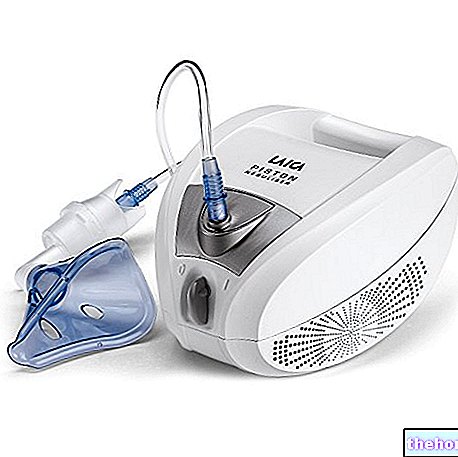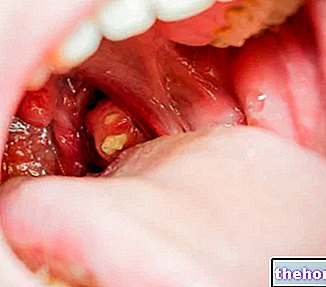Causes
Although it is not possible to trace a precise and unequivocal cause, it is assumed that the formation of nasal polyps is related to diseases such as: allergy, asthma, cystic fibrosis, chronic sinusitis (especially), immunodeficiency and connective tissue diseases, administration of some drugs , smog.
Symptoms
The characteristic symptoms caused by nasal polyps are: ageusia, anosmia, headache, nasal congestion, difficulty breathing, facial pain, runny nose, watery eyes, itchy eyes and snoring.
Diagnosis
The diagnosis of nasal polyposis is ascertained by subjecting the patient to one or more investigative tests. Among the most validated diagnostic techniques we mention: anamnesis, ENT examination, skin allergy tests, haematological tests, nasal and olfactory respiratory function tests. Imaging (CT or MRI) and endoscopic tests are also sometimes needed.
The cystic fibrosis test is indicated for infant nasal polyposis.
Therapy
- Drug therapy (for small polyps): corticosteroid drugs (to be sprayed in the nose or taken by mouth), antihistamines (for the treatment of allergy-dependent nasal polyps), antibiotics or antifungals (in case of bacterial / fungal superinfections)
- Surgical Therapy: Polypectomy or Endoscopic Sinus Surgery
The curious term "polyp" recalls the aspect assumed by the degenerated nasal-paranasal mucosa during this disorder: it appears shiny, clear and soft, just like a polyp.
Nasal polyp is a soft edematous pedunculated manifestation that can appear in any portion of the nasal mucosa or sinuses. The inflamed nasal mucosa transforms into a gelatinous texture - similar to that of grapes - and with a translucent and pale appearance, giving rise to a "growth known precisely as polyp.
Nasal polyps are distinguished on the basis of their cellular composition: thus, nasal polyps consisting mainly of neutrophil cells are defined as "neutrophils", and "eosinophils" when eosinophilic leukocytes are their main components.
Multiple benign polyposis occurs in patients over the age of 20, and is extremely common in males over 40. In children, on the other hand, nasal polyps are a rather rare phenomenon: when they occur in children, it is recommended that the patient be tested for cystic fibrosis.
Nasal polyps can recur even after drug or surgical treatment.
or fungal)
- Churg-Strauss syndrome: this is a systemic vasculitis affecting the small blood vessels
- Primary ciliary dyskinesia: congenital disease linked to alterations in the structure and function of the cilia of the respiratory mucosa
- Selective IgA deficiency: rather frequent congenital defect affecting the immune system characterized by a reduction in plasma IgA levels
- Connective tissue diseases (rare)
- Excessive intake of certain drugs, especially aspirin and salicylates
- Chronic inhalation of irritants (e.g. smoke, smog)
- Alcohol intolerance
- Infections with Aspergillus, Fusarium or other molds
The clinical picture is often complemented by a number of secondary symptoms:
- Altered olfactory capacity (anosmia)
- Change in taste (hypogeusia / ageusia)
- Headache
- Facial pain
- Toothache
- Runny nose (runny nose)
- Watery eyes
- Perception of pressure on the forehead and face
- Itchy eyes
- Snoring
The disease can sometimes be asymptomatic, especially when the size of the nasal polyps is negligible.
In severe cases, nasal polyps can give rise to serious complications, such as obstructive sleep apnea, spread of infection to the eye, meningitis, aneurysms and asthma attacks. Given the real risk of a collapse of the clinical picture, it is strongly advised to seek immediate medical advice in case of severe breathing difficulties, double vision, sudden worsening of symptoms, high fever and significant swelling around the eyes.
However, it should be noted that serious complications from nasal polyposis are quite rare: in the vast majority of cases, small nasal polyps regress spontaneously or with a specific drug treatment. Large polyps, on the other hand, require surgical excision.
Other articles on "Nasal Polyps"
- Nasal Polyps: Diagnosis and Therapy
- Nasal Polyps - Drugs for the treatment of Nasal Polyps























-nelle-carni-di-maiale.jpg)




